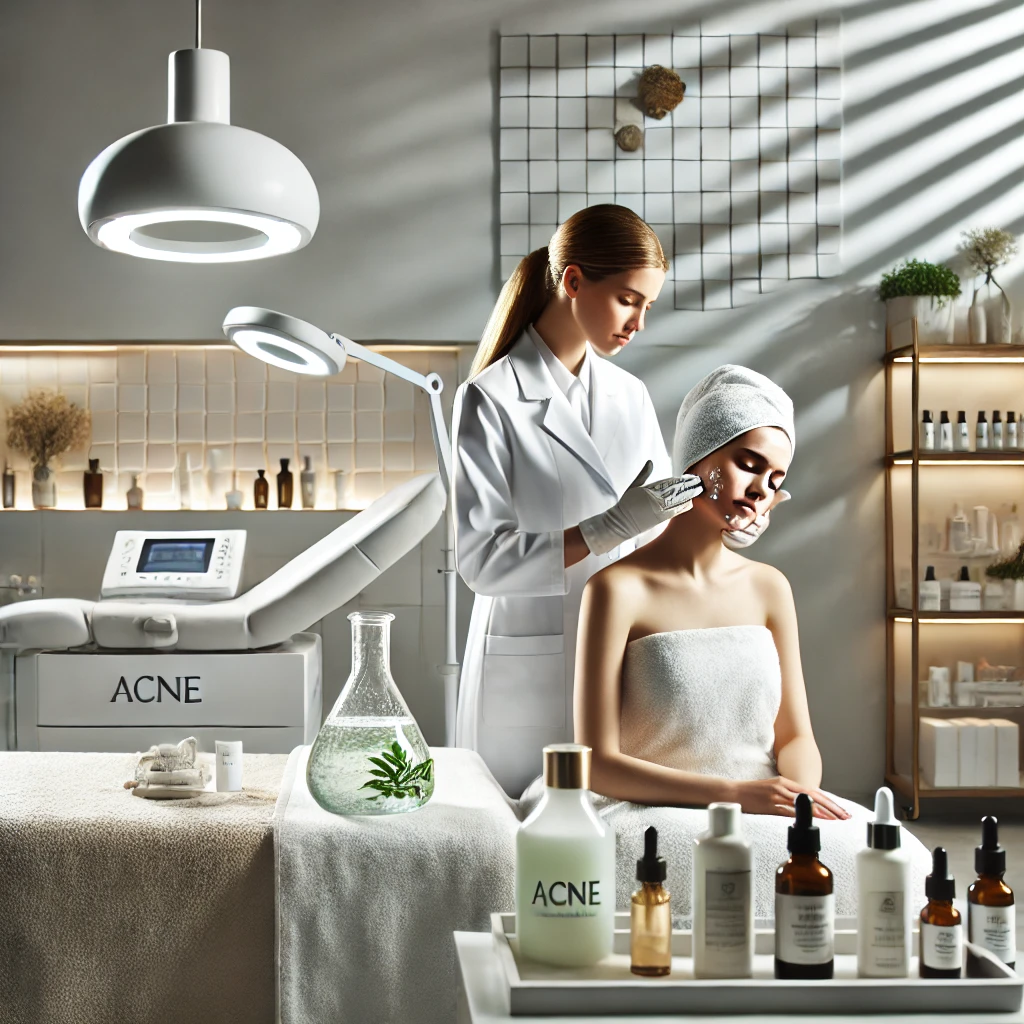
Best Beauty And Spa Center in Columbus Ohio.
What is Acne Treatment?
Acne treatments or medications reduce oil production and swelling while also treating bacterial infections. Lifestyle changes, facial treatments, topical medications, oral medications, and medical procedures are all acne treatments. The treatment that is best for you is determined by your specific condition. Most prescription acne medications do not produce results for four to eight weeks. It may take months or years for your acne to completely clear up.
What Is Organic Acne Facial?
One of the many advantages of an organic facial is that it can aid in the treatment of acne. When you get a facial, your skin is cleansed of all the impurities that are often left behind, leading to acne.
This type of face detox will go above and beyond a regular cleanser to prevent breakouts. During a facial, you will be treated with natural anti-bacterial ingredients that can help you get rid of pimples.
Acne scars are another issue that many people face on a daily basis. Covering them up with makeup can aggravate the situation, but regular facials can help heal these scars and reduce their visibility.
What Age Should You Start Acne Treatment?
Acne can begin at a young age. Dermatologists now see acne patients aged 7 to 12. Acne can be avoided by treating it early and keeping it under control. Today, that can add up to many years without acne.
What Results Should I See?
- Most acne facials claim to reduce acne symptoms by:
- 1. cleansing the skin to remove impurities, debris, and oil
- 2. unclogging pores using exfoliation, which is the removal of dead skin cells
- 3. reducing oil production and inflammation of the skin
- 4. reducing irritation
- 5. killing acne-causing bacteria
- 6. improving skin hydration
- 7. Chemical peels, microdermabrasion, and light therapy may be used in professional acne facials. Although there are 8. numerous at-home versions of these products and devices available, their effectiveness and safety are unknown.
- Manual extraction techniques can also be used by a skin care professional, ideally a dermatologist, to remove whiteheads, blackheads, cysts, and nodules. Minor acne lesions may also be extracted by estheticians.
How Long Does Acne Facial Take?
Our Special Acne Treatment usually takes about an hour to perform.
The procedure has 6 simple steps:
1-Analyzing to see the skin type
2-Cleansing and Dermaplaning
3- Deep-pore cleaning and exfoliating
4-Applying LED light to sanitize the skins pores
5-Steam plus facial massage with customized oil.
6-Applying customized herbal warm mask then, at the end of the facial using collagen cold mask to minimize the skin pores.
How Often Should I Get a Facial for Acne?
every two weeks
If you have acne-prone skin, you should visit every two weeks during breakouts. You can go longer between visits once your skin has cleared up.
It usually takes about 6 weeks to see an improvement in your acne. A course of oral antibiotics can last 4 to 6 months, depending on how well you respond to the treatment.
What You Should Do After Acne Treatment?
Keep your routine simple by only using a gentle cleanser and calming moisturizer. Twice a day, morning and night, you’ll want to cleanse and immediately follow with the application of a moisturizer. If your skin is inflamed due to harsh acne treatments, less is more right now.
Beware of not making Acne Mistakes as is discussed above.
How To Prepare for Acne Treatment?
- Go Bare. On the day of your appointment, don’t wear makeup. It’s so much easier for the dermatologist or your skin specialist to see what’s going on with your skin. Also, don’t load your face up with moisturizing cream, douse yourself with astringent, or scrub like crazy at your face.
- Alcohol and acetone: Alcohol has a mild antibacterial effect, and acetone can remove oils from the skin’s surface. Some over-the-counter acne medications contain a combination of these ingredients. Dermatologists generally do not recommend these agents because they dry out the skin and have little or no effect on acne.
- Using oily products: Avoid oily or greasy cosmetics, moisturizers, sunscreens and acne cover-ups. Prefer products that are water based and not likely to block pores (noncomedogenic).
- Forgetting to wash your face daily: Problem areas should be cleaned gently with lukewarm water and mild soap. Do this twice a day, after you’ve worked up a sweat.
- Being too rough with your skin: Scrubbing too hard or using harsh products such as astringents and masks can worsen acne.
- Touching your face: Hands, phone, and hair should be kept away from your face. Excessive contact can result in flare-ups.
- Picking or squeezing pimples. This can cause an infection or scar.
- Fights Hyper-Pigmentation:The free radicals rooted deeply in our skin causes excess production of melanin as well. It results in skin discoloration and brown patches, which we know as hyperpigmentation. Since pumpkin enzyme masks contain vitamin C, they brighten up the dark spots. Also, it increases the cell turnover rate, reducing discoloration and caused by dullness.
